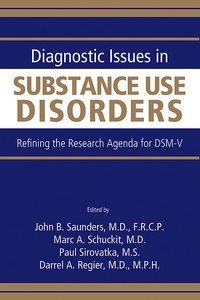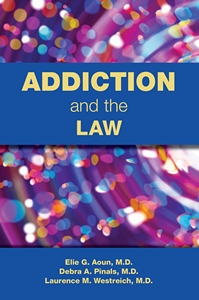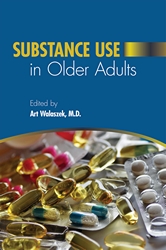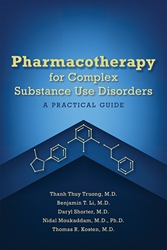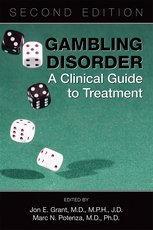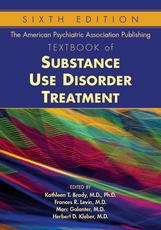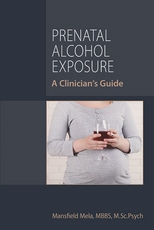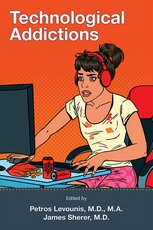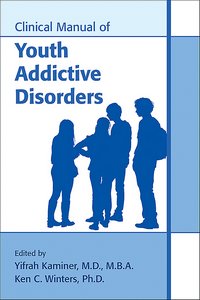Diagnostic Issues in Substance Use Disorders
Refining the Research Agenda for DSM-V
View Pricing
Description
Inviting the help of colleagues worldwide, the concise Diagnostic Issues in Substance Use Disorders is part of the new series Advancing the Research Agenda for DSM-V. Its 19 chapters by an international group of experts are designed to stimulate questions that will help guide research related to the development of the next editions of the Diagnostic and Statistical Manual of Mental Disorders (DSM-V) and the International Classification of Diseases (ICD-11), with the goal of ensuring that the major substance use diagnoses represent the same condition in both references. They cover 10 major issues in three main sections:
- Overarching issues relevant for the development of international diagnostic systems—statistical modeling techniques and whether DSM-V should use categorical and/or dimensional diagnostic approaches; methods review, emphasizing new hybrid techniques for developing and testing diagnostic concepts; the need for separate clinical and research-oriented diagnostic criteria, incorporating both categorical and dimensional attributes; neurobiological changes characterizing substance dependence; the importance of cultural attributes in developing definitions of substance use disorders; and the history of the development of diagnostic systems and how to optimize the crosswalk between DSM and ICD.
- Research questions more specific to the substance use disorders section of DSM—comorbidity between substance use disorders and other psychiatric conditions, the relatively unique clinical course of substance-induced mental disorders and appropriate treatment approaches; the precision of the criteria and threshold for a diagnosis and how to improve them; the subtypes of substance use disorder, including how they have been derived and the extent to which they relate to neurobiological processes; the seemingly high prevalence of alcohol dependence in young people; suggested research questions to evaluate the application of diagnostic criteria to adolescents; and the specific psychoactive substances cannabis and nicotine.
- Whether substance use disorders should be included in a broader section termed addictive disorders—impulse-control disorders (especially pathological gambling and the advantages and disadvantages of adding it to the current substance use disorders section), identifying research opportunities regarding their assessment and neurocognitive and physiological bases, discussing the specifics of the research agenda and how it might be implemented, and presenting questions generated by the research agenda developmental process.
This informative compendium distills the findings of a wealth of recent research and concludes with recommendations for exploiting research opportunities that promise to inform decisions regarding DSM-V and other classification systems. As such, it will prove invaluable for clinicians and researchers everywhere.
Contents
- CONTRIBUTORS
- DISCLOSURE STATEMENT
- FOREWORD
- INTRODUCTION: DEVELOPMENT OF A RESEARCH AGENDA FOR SUBSTANCE USE DISORDERS DIAGNOSIS IN DSM-V
- Chapter 1. SHOULD SUBSTANCE USE DISORDERS BE CONSIDERED CATEGORICAL OR DIMENSIONAL?
- Chapter 2. SHOULD THERE BE BOTH CATEGORICAL AND DIMENSIONAL CRITERIA FOR THE SUBSTANCE USE DISORDERS IN DSM-V?
- Chapter 3. NEUROBIOLOGY OF ADDICTION: A Neuroadaptational View Relevant for Diagnosis
- Chapter 4. CULTURAL AND SOCIETAL INFLUENCES ON SUBSTANCE USE DIAGNOSES AND CRITERIA
- Chapter 5. CULTURAL ISSUES AND PSYCHIATRIC DIAGNOSIS: Providing a General Background for Considering Substance Use Diagnoses
- Chapter 6. SUBSTANCE DEPENDENCE AND NONDEPENDENCE IN DSM AND THE ICD: Can an Identical Conceptualization Be Achieved?
- Chapter 7. SUBSTANCE USE DISORDERS: DSM-IV and ICD-10
- Chapter 8. COMORBIDITY OF SUBSTANCE USE DISORDERS WITH PSYCHIATRIC CONDITIONS
- Chapter 9. COMORBIDITY OF SUBSTANCE USE WITH DEPRESSION AND OTHER MENTAL DISORDERS: From DSM-IV to DSM-V
- Chapter 10. ARE THERE EMPIRICALLY SUPPORTED AND CLINICALLY USEFUL SUBTYPES OF ALCOHOL DEPENDENCE?
- Chapter 11. SUBTYPES OF SUBSTANCE DEPENDENCE AND ABUSE: Implications for Diagnostic Classification and Empirical Research
- Chapter 12. DIAGNOSIS OF ALCOHOL DEPENDENCE IN EPIDEMIOLOGICAL SURVEYS: An Epidemic of Youthful Alcohol Dependence or a Case of Measurement Error?
- Chapter 13. ADOLESCENTS AND SUBSTANCE-RELATED DISORDERS: Research Agenda to Guide Decisions About DSM-V
- Chapter 14. ARE SPECIFIC DEPENDENCE CRITERIA NECESSARY FOR DIFFERENT SUBSTANCES?: How Can Research on Cannabis Inform This Issue?
- Chapter 15. SHOULD CRITERIA FOR DRUG DEPENDENCE DIFFER ACROSS DRUGS?
- Chapter 16. SHOULD ADDICTIVE DISORDERS INCLUDE NON-SUBSTANCE-RELATED CONDITIONS?
- Chapter 17. SHOULD THE SCOPE OF ADDICTIVE BEHAVIORS BE BROADENED TO INCLUDE PATHOLOGICAL GAMBLING?
- Chapter 18. CHARACTERISTICS OF NOSOLOGICALLY INFORMATIVE DATA SETS THAT ADDRESS KEY DIAGNOSTIC ISSUES FACING THE DSM-V AND ICD-11 SUBSTANCE USE DISORDERS WORKGROUPS
- Chapter 19. EMPIRICAL BASIS OF SUBSTANCE USE DISORDERS DIAGNOSIS: Research Recommendations for DSM-V
- INDEX
Contributors
- Thomas F. Babor, Ph.D., M.P.H.
Alan J. Budney, Ph.D.
Raul Caetano, M.D., Ph.D.
Linda B. Cottler, Ph.D.
Thomas J. Crowley, M.D.
Javier I. Escobar, M.D.
Bridget F. Grant, Ph.D.
Sarah E. Guth
Deborah Hasin, Ph.D.
Mark L. Hatzenbuehler
John E. Helzer, M.D.
Michie N. Hesselbrock, Ph.D., M.S.W.
Victor M. Hesselbrock, Ph.D.
John R. Hughes, M.D.
Katherine Keyes
George F. Koob, M.D.
Bengt Muthen, Ph.D.
Edward V. Nunes, M.D.
Elizabeth Ogburn
Nancy M. Petry, Ph.D.
Marc N. Potenza, M.D.
Darrel A. Regier, M.D., M.P.H.
Robin Room, Ph.D.
Bruce J. Rounsaville, M.D.
John B. Saunders, M.D., F.R.C.P.
Marc A. Schuckit, M.D.
Paul J. Sirovatka, M.S.
Wim van den Brink, M.D.
William A. Vega, Ph.D.
About the Authors
John B. Saunders, M.D., F.R.C.P., is Professor of Alcohol and Drug Studies and Director of Alcohol and Drug Services at the University of Queensland School of Medicine and Royal Brisbane and Women's Hospital in Herston, Queensland, Australia.
Marc A. Schuckit, M.D., is Professor of Psychiatry at the Alcohol Research Center, and Director of the Alcohol and Drug Treatment Program, at VA San Diego Healthcare System in La Jolla, California.
Paul Sirovatka, M.S., is Associate Director for Research Policy Analysis in the Division of Research/American Psychiatric Institute for Research and Education in Arlington, Virginia.
Darrel A. Regier, M.D., M.P.H., is Executive Director of the American Psychiatric Institute for Research and Education (APIRE) of the American Psychiatric Association in Arlington, Virginia.
Related Products
Carousel Control - items will scroll by tabbing through them, otherwise arrows can be used to scroll one item at a time
